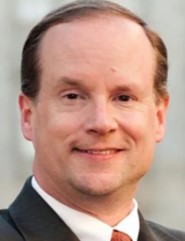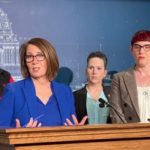Give Nurses More Freedom to Practice
 In North Carolina, Medicaid expansion is a foregone conclusion. The General Assembly approved the necessary legislation. Gov. Roy Cooper signed it. While expansion is contingent on the passage of a state budget, no one doubts that’ll happen. So, the governor finally secured his highest legislative priority. Republican leaders got a few reforms of the certificate-of-need system, which will break up some of our state’s medical monopolies. And hundreds of thousands of uninsured North Carolinians will be enrolled in a health plan for which they’ll pay nothing.
In North Carolina, Medicaid expansion is a foregone conclusion. The General Assembly approved the necessary legislation. Gov. Roy Cooper signed it. While expansion is contingent on the passage of a state budget, no one doubts that’ll happen. So, the governor finally secured his highest legislative priority. Republican leaders got a few reforms of the certificate-of-need system, which will break up some of our state’s medical monopolies. And hundreds of thousands of uninsured North Carolinians will be enrolled in a health plan for which they’ll pay nothing.
All gain, no pain? Of course not. Medicaid expansion isn’t “free.” Every time a state says yes to federally financed expansion, America’s federal budget gets further out of whack and America’s taxpayers are plunged deeper into debt. And every time a state offers residents “free” health care, demand goes up, including in emergency departments, while the supply of medical facilities and professionals lags behind.
That’s why Phil Berger and other leaders of the North Carolina Senate included in their Medicaid-expansion plan several measures to expand supply. Cooper and the House gave a partial yes to one of them, CON reform. Unfortunately, they gave a flat no to another supply-side change: allowing advanced-practice nurses to operate more independently.
The term of art here is “scope-of-practice” reform. It allows nurses to provide the full array of services for which they are licensed without having a physician take a cut of their fees. Limiting the scope of nursing practice has the effect of raising prices and limiting services to patients, especially in sparsely populated or impoverished areas where it may be uneconomical for doctors to set up shop.
Advanced-practice nurses have gone beyond undergraduate degrees to obtain additional education and training. Some, nurse practitioners, provide generalized or family care. Others specialize in a category of care, such as nurse midwives and nurse anesthetists.
Physician organizations are, not surprisingly, skeptical if not openly hostile to scope-of-practice reform. While the prospect of losing revenue to advanced-practice nurses is one of their concerns, I’ve talked with enough doctors to know that many also sincerely believe patients with serious conditions will be poorly served by nurses practicing on their own, that some patients will be misdiagnosed, provided incorrect or inadequate treatment, and perhaps even die as a result.
This objection isn’t a frivolous one. It deserves serious consideration. Because there’s a significant variation in how states regulate the practice of nursing, however, this objection can be tested with real-world data. Do places where nurses are allowed to practice independently up to the level of their licenses exhibit higher rates of medical accidents, chronic disease, or mortality?
In a paper just released by the National Bureau of Economic Research, Emory University scholars used two measures — malpractice awards and adverse action reports involving advanced-practice nurses — to look for harmful effects of scope-of-practice reform on medical outcomes. Here’s what they found: states that have granted full practice authority to their nurses have seen no such increase in patient harms. Indeed, the economists concluded that “physicians may benefit from the law change in terms of reduced malpractice payouts against them.”
This is hardly the first study to reach a similar conclusion. Some years ago the National Governors Association published a comprehensive survey of peer-reviewed research on advanced-practice nursing. The studies generally found that nurse practitioners “provided at least equal quality of care to patients as compared to physicians,” and in particular that they “rate favorably in terms of achieving patients’ compliance with recommendations, reductions in blood pressure and blood sugar, patient satisfaction, [and] longer consultations.”
If patients prefer to visit a physician, they should have every right to do so. But if they’re comfortable with a nurse practitioner, and don’t want to drive a long distance to wait at a doctor’s office, shouldn’t they also have that right?
Scope-of-practice reform didn’t make it into the Medicaid-expansion deal. But there’s still plenty of time left in the 2023 legislative session to rectify that mistake.
John Hood is a John Locke Foundation board member. His latest books, Mountain Folk and Forest Folk, combine epic fantasy with early American history (FolkloreCycle.com).
(This story originally appeared in the Sun Journal.)




